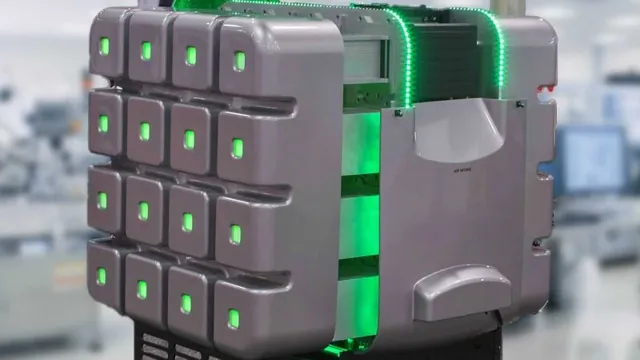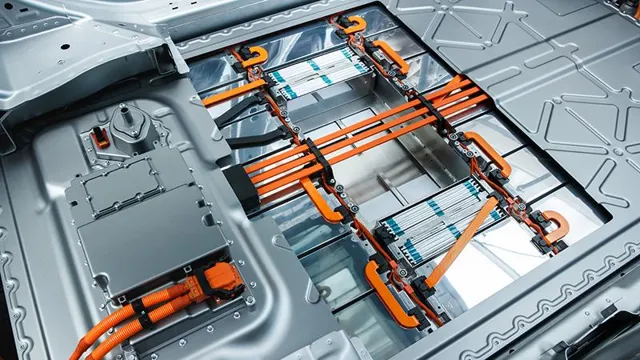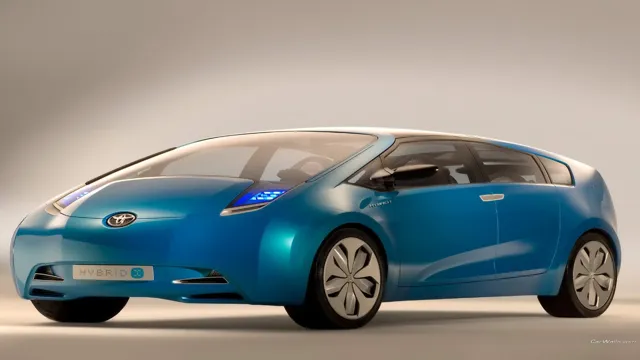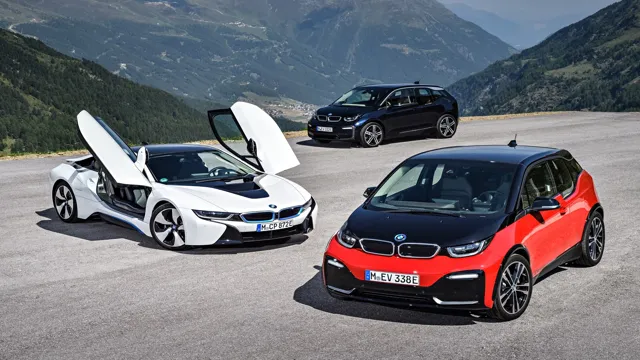Revolutionizing the Road: Exploring the Latest Battery Technology for Electric Cars
Electric vehicles (EVs) have been making headlines for a while now, and for good reason. They are eco-friendly, cost-effective, and provide a smooth and quiet driving experience. One of the key factors that have been holding back their widespread adoption, however, has been the limited range of their batteries.
Fortunately, the latest battery technology is making significant strides and is addressing this concern. The development of batteries that can provide higher energy density, faster charge times, and longer-lasting lifespans is revolutionizing the EV industry. These batteries are not only lighter and more compact but are also more efficient, resulting in a significant reduction in carbon emissions.
With these advancements, EVs can now travel longer distances between charges, which makes them more practical for everyday use. One of the most exciting developments in the latest battery tech is solid-state batteries. Unlike conventional lithium-ion batteries, they use a solid electrolyte rather than a liquid one, making them safer, faster-charging, and longer-lasting.
They are even capable of functioning in extremely cold or hot temperatures, which is a significant advantage. Another noteworthy development is silicon anodes. These anodes can store 10 times more energy than conventional graphite anodes, thereby providing significantly longer range for EVs.
Also, they can charge and discharge faster than graphite, which could substantially reduce the time taken for EVs to charge up. In conclusion, the latest battery tech for EVs is paving the way for more sustainable, efficient, and practical electric vehicles. With batteries that are faster-charging, longer-lasting, and have a higher energy density, the future of EVs is looking bright.
The coming years will undoubtedly see more developments in battery technology that will keep pushing the boundaries of what we thought was possible for EVs.
Current EV Battery Technology
The latest battery technology for electric cars has made significant strides over the past few years in terms of efficiency and performance. Lithium-ion batteries have been the go-to solution for EVs, but now, solid-state batteries are gaining traction. Solid-state batteries offer advantages over their Li-ion counterparts, such as higher energy density, longer lifespan, and being less prone to fire.
Several companies are investing in the development of solid-state batteries, and they are expected to hit the market by 202 Another advancement in EV battery technology is the use of silicon instead of graphite as the anode material. Silicon can store ten times more energy than graphite, making it a game-changer in battery technology.
Overall, the latest battery technology for electric cars is exciting and the future is looking bright for speedy charging, longer-lasting, more efficient batteries.
Lithium-Ion Batteries
Lithium-ion batteries are the standard technology used in electric vehicles today, providing the necessary power to propel these environmentally friendly vehicles on the road. These batteries rely on lithium-ion cells to hold a charge and deliver energy to the motor of an electric vehicle. Compared to traditional lead-acid batteries, lithium-ion batteries offer superior energy density, allowing for a longer driving range per charge.
They also have a longer lifespan and lower maintenance requirements. However, these batteries are not without their drawbacks. Lithium-ion batteries can be volatile and require careful monitoring to prevent overheating or other safety issues.
Despite these challenges, researchers continue to improve lithium-ion battery technology, striving to create more reliable and efficient EV batteries that can power the transport of the future.

Solid-State Batteries
Current EV battery technology relies heavily on lithium-ion batteries, which have been the primary energy source for electric cars over the past decade. While lithium-ion batteries have proved to be efficient and reliable, they still have some limitations, including safety concerns and short lifespans. Researchers in the EV industry are now exploring the potential of solid-state batteries, which could represent a revolutionary breakthrough for EV technology.
Solid-state batteries utilize solid electrolytes instead of the traditional liquid or polymer ones used in lithium-ion batteries. This means they are less likely to overheat or catch fire, making them a safer option. Additionally, solid-state batteries offer higher energy density, which means longer battery life and longer driving ranges for electric cars.
As technology advances and production costs for solid-state batteries decrease, they could become the preferred choice for EV manufacturers.
Cutting-Edge Battery Tech
As electric cars become more mainstream, advancements in battery technology are crucial for improving their efficiency and range. The latest battery technology for electric cars includes solid-state batteries, which use solid electrolytes instead of liquid ones, making them safer and more efficient. Another cutting-edge option is lithium-sulfur batteries, which have a higher energy density than traditional lithium-ion batteries and could potentially double the range of electric vehicles.
Additionally, research is being conducted on flow batteries, which use two liquid electrolytes to store and release energy, allowing for quick refueling similar to traditional gas-powered cars. These innovative battery technologies are paving the way for a more sustainable and practical electric car industry.
Lithium-Sulfur Batteries
Lithium-sulfur batteries are the cutting-edge of battery technology, offering a higher energy density and longer lifespan than traditional lithium-ion batteries. These advanced batteries work by using sulfur as the cathode material instead of the more common lithium cobalt oxide. The benefit of this is that sulfur is a readily available and inexpensive material, making these batteries more cost-effective than their counterparts.
Additionally, the use of sulfur as a cathode material allows for a higher theoretical energy capacity, which could lead to longer-lasting and more powerful batteries. However, there are still challenges that need to be addressed before lithium-sulfur batteries can become widely available. These include the issue of sulfur dissolution, which can reduce the battery’s efficiency over time, and the need for a more stable electrolyte.
Despite these challenges, lithium-sulfur batteries offer a promising future for the world of energy storage, providing a sustainable and efficient solution to powering our devices and vehicles.
Metal-Air Batteries
Metal-Air batteries are a promising new addition to cutting-edge battery technology. These batteries use a chemical reaction between metal and oxygen to produce electricity, making them a much more efficient and powerful option than traditional batteries. They are also much lighter and longer-lasting compared to other types of batteries.
Metal-Air batteries are still in the early stages of development, but they have already shown great potential for use in electric vehicles, mobile devices, and even renewable energy storage. With their impressive energy density and low environmental impact, Metal-Air batteries are poised to revolutionize the way we power our lives.
Quantum Batteries
Quantum Batteries Quantum batteries are a fascinating and innovative development in the field of batteries. These batteries make use of quantum mechanics to store and release energy in a more efficient manner than traditional batteries. They have the potential to revolutionize the way we store and use energy by providing higher energy density, faster charging times, and longer battery life.
One of the key advantages of quantum batteries is their ability to utilize quantum tunneling to transfer energy more quickly and efficiently than traditional batteries. This means that they can charge and discharge faster, which could have significant implications for electric vehicles and other applications that require quick battery recharging. In addition, quantum batteries have the potential to store more energy in a smaller physical space than traditional batteries.
This could make them ideal for use in wearable technology, where space is at a premium, as well as in other applications where size and weight are critical factors. All in all, quantum batteries are an exciting development in the field of battery technology. As research continues, it is likely that they will become an increasingly important part of our lives, powering everything from electric cars to mobile devices.
Benefits of the Latest Battery Tech
The latest battery technology for electric cars has numerous benefits that can positively impact both drivers and the environment. Firstly, these batteries offer increased range, which means that drivers can travel further without having to stop and recharge their cars. This not only saves time but ensures that electric cars can be used for longer journeys.
Secondly, the latest battery technology is more energy-efficient, which means that vehicles can run for longer periods of time without running out of juice. Not only does this make electric cars more convenient, but it also reduces the carbon footprint of the vehicle. Another benefit of the latest battery technology is that it is more durable and reliable, which means that electric cars are likely to require less maintenance and replacement of batteries.
This makes owning an electric car more affordable and more sustainable in the long term. Overall, the latest battery technology is a game-changer for the electric car industry and a significant step towards a greener future.
Increased Range
One of the major benefits of the latest battery technology is the increased range that it offers. This is especially true in the electric vehicle (EV) industry, where the limited range of the battery has been a major impediment to more widespread adoption. With improved battery chemistry and design, however, the latest EVs boast ranges of up to 400 miles on a single charge, making them more practical for daily use and longer journeys alike.
This also means that EV owners don’t have to worry as much about running out of power and being stranded on the side of the road. Overall, the increased range that the latest battery tech provides has been a game-changer for the EV industry and is helping to drive the transition to a more sustainable future.
Faster Charging Times
Faster Charging Times If you’re constantly searching for a plug socket to revive your dwindling phone battery, you’ll be pleased to know that the latest battery technology is here to save you. The benefits of these advancements go beyond increased battery life; they also mean faster charging times. Known as fast-charging or quick-charging, this technology enables your device to charge significantly faster than it would with a standard charger.
It’s all made possible through the combination of high-capacity batteries and optimized charging circuits. So, whether you’re in a rush or simply want to spend less time waiting for your phone to be ready, this latest battery tech could be a real game-changer for you. The best part is that this technology isn’t just limited to smartphones; it’s being implemented in electric vehicles and other devices too.
So, you can expect to see faster charging times across multiple technologies in the near future.
The Future of EV Batteries
As electric cars become more popular, the demand for the latest battery technology continues to grow. The newest battery technologies are designed to provide longer ranges and faster charging times, making electric vehicles a more practical option for daily use. One of the latest battery technologies is the solid-state battery.
In comparison to a liquid electrolyte, a solid-state battery uses a solid material to separate the two electrodes. An advantage of these batteries is that they can hold more charge and have higher energy density, allowing for a longer driving range on a single charge. Another battery technology is the lithium-sulfur battery.
Lithium-sulfur batteries have a higher energy density than previous versions, making them lighter and more efficient. They can also be more cost-effective to produce, leading to a reduction in electric vehicle prices. The latest battery technology for electric cars is advancing rapidly and will continue to improve over time, making electric cars an even more attractive option for drivers.
Conclusion
In conclusion, the latest battery technology for electric cars sure packs a punch. With advancements in chemistry, manufacturing, and charging infrastructure, car manufacturers can now produce cars with longer ranges and faster charging times. So, the next time you see an electric car on the road, don’t be surprised if it looks like it’s coming from the future! After all, good things come to those who wait.
.. and invest in the latest battery tech.
“
FAQs
What is the latest battery technology used in electric cars?
The latest battery technology used in electric cars is Lithium-ion battery. These batteries are lighter, more efficient, and have a higher energy density than traditional lead-acid batteries.
What is the range of an electric car battery with the latest technology?
The range of an electric car battery with the latest technology varies depending on the make and model of the car. However, some electric cars can travel up to 300 miles on a single charge with the latest battery technology.
How long does it take to charge an electric car battery with the latest technology?
The charging time of an electric car battery with the latest technology varies depending on factors such as the size of the battery, the charging station used, and the voltage. However, some electric cars with the latest battery technology can be charged to 80% capacity in as little as 30 minutes using fast DC charging stations.
What is the lifespan of an electric car battery with the latest technology?
The lifespan of an electric car battery with the latest technology varies depending on factors such as usage, charging habits, and environmental conditions. However, most electric car manufacturers offer a warranty of 8-10 years or 100,000 miles for their batteries.






